|
|
Seed Central roundtable - The seed industry is a great
place for women to work
January 14, 2016
Testimonials
Lara Timmerman
CEO
Pop Vriend Seeds
The Netherlands
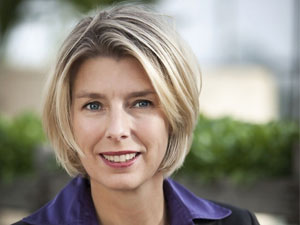
I had no
intentions of working in agriculture at first. I
was mainly interested in an international
career. After a business degree and some years
in the US and UK, my father asked me to join the
family seed breeding company in the Netherlands.
That was quite the change. Moving from a large
publishing & marketing firm in Boston and London
to the spinach fields of California, the seed
production sites in Tanzania, and the trial
fields in the Netherlands was a challenge.
It was completely different, but oh! so
rewarding. I have no regrets of the past 15
years. Every day we get to go out and work in
and with nature. Every day we get to help
growers around the world growing a crop with
which to feed their family, their village or
whole parts of the country. Combining cutting
edge technology with the beauty and challenges
of nature is exciting and rewarding. Working to
make the world more healthy is a worthy reason for
getting out of bed every morning. |
Heather Kibble
Home Garden Vegetable Division Manager
Sakata
Seed America, Inc.
California, USA
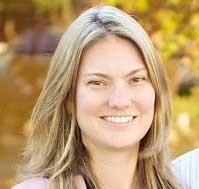
My southern California
hometown is surrounded by fields and
orchards, but surprisingly a career in
agriculture did not occur to me as an
option until I joined the workforce
after college. The only science related
careers I was aware of were medicine and
laboratory work- neither of which
interested me. I started college as an
accounting major but the suits and big
city accounting firm careers which
attracted my friends didn't appeal to
me. I switched to a degree in consumer
resource management with a plan of
becoming a personal credit councilor.
After college I worked in customer
service at a local seed company. A whole
new world appeared to me when I learned
about the business behind all the fields
I had seen growing up. After several
years in the workforce I completed an
MBA.
I have had several different roles, from
customer service to sales to training to
sales management, and I found that women
are present in agriculture in the
harvest crews, in the sales and customer
service offices, assisting breeders in
the fields, and in the marketing and HR
departments of the major agriculture
companies. Where women are not found as
much is in the board room, as breeders
in the field, in sales, sales
management, and high level research and
development roles. The same can be said
for people of color.
One way we can increase diversity in
research and in management is to put our
fears aside and jump in. We need to do
hard things. We need to make some
sacrifices in our personal lives. We
need to be OK with working with people
who may not look or think just like us.
My favorite days at work are spent with
my very diverse co-workers discussing
vegetable varieties in the field. I
would never have dreamed that I could
get paid to evaluate vegetables with
people from Japan and France in a field
in south Florida. Our industry is fun
and crazy and always changing. I think
the more diverse the board rooms and the
R & D departments are, the better our
companies and eventually our world will
be.
Balancing work and a personal life
should not be considered a woman’s
issue, it should be a key issue for
society as a whole. I was raised mostly
by a single father and I watched him
struggle with many of the same conflicts
that I now face myself as a parent. Our
society needs to find a way to insure
that parents can be present for their
children - attending a sporting event,
dance recital, or concert once in a
while. We all need to be able to care
for a sick loved one or take somebody to
the doctor. Strong families make for
strong workplaces and improve society as
a whole. Having both a successful career
and a personal life requires some
thoughtful planning, flexibility, and a
willingness to make allowances
sometimes.
I encourage young women and girls to
consider a career in agriculture. Roles
like mine have the best of both worlds.
I spend some time outside, traveling,
visiting fields, learning about people
(and vegetables) from all over the world
and plenty of time in an office and
interacting with people - and my beloved
spreadsheets.
I don’t know of an easy job in
agriculture, but the best things in life
aren’t easy. The best things in life
require sacrifice, focus, and hard work,
resulting in a sense of accomplishment.
If women are willing to step up, they
can be part of fulfilling the important
mission of feeding the world through
agriculture.
|
| |
Nathalia Moretti
Lead Biologist, Trait Product
Development
Dow
AgroSciences
Indiana, USA
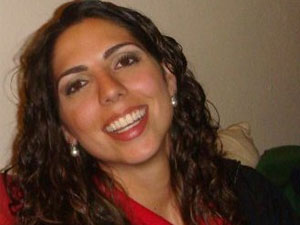
My grandfather
was a potato grower in Brazil, and I grew up
hearing about his passion for agriculture.
However, it wasn’t until my High School senior
year that I decided to study agronomy. My first
experience with plant breeding happened by
chance at the end of the Agronomy degree. I was
looking for a hands-on opportunity abroad and I
applied for an internship at UC Davis to work at
the Dry Bean Breeding Program. I had a great
experience there and I got fascinated with the
idea of creating new varieties with improved
traits that would help growers to produce more
and better manage their crops. Therefore, when I
went back to Brazil, I started working at
Monsanto with corn foundation seed production. I
demonstrated interest in research, so after
working with seed production for over a year I
was encouraged by my supervisor at the time to
start a master's degree.
I moved back to
California and received my master degree in
Plant Science from Fresno State. After working
for few months at the Dubcovsky Lab at UC Davis
with barley breeding I started working with Dow
AgroSciences. I started at Dow working with
field screening of drought tolerant corn and now
I supervise a media lab of soybean
transformation. I go to work happy every day.
Being in the Seed Industry and helping with crop
improvement is very rewarding, and I encourage
any graduate young woman from related areas to
try it. |
|
| |
Rebecca Turner
Onion Prebreeder
Bayer
CropScience Vegetable Seeds
Oregon, USA
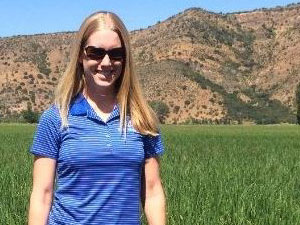
As an undergrad
I was fortunate to have several internship
opportunities with seed companies and plant
science groups both in the U.S. and abroad. I
was pursuing a Genetics major, so a career in
plant breeding was a logical step to bridge my
studies with my interest in agriculture, and I
felt like private industry was the best fit for
my goals and ambitions. This path led me to
pursue a PhD in Genetics and Plant Breeding.
Choosing to complete a PhD over a MS degree gave
me more flexibility and choices when searching
for a position. Another important choice I made
as a grad student at UC Davis, was to attend
many conferences to network with other industry
members outside of academia, which led me to my
current position with Bayer Vegetable Seeds.
My position in
PreBreeding focuses on trait and germplasm
development. With a heavier focus on the
Research portion of R&D, it surprised me at
first how similar it seemed to working as a
postdoc. The position is as flexible as you make
it, and each of the R&D team members has a say
in what projects the team works on, so long as
they bring enough convincing evidence and a
logical reasoning to justify the task. I’ve had
the opportunity to travel to several countries
and regularly get to meet with colleagues from
all around the globe. Travel demands, while
seasonal and dependent on the crop you work in,
are generally adaptable to the needs of each
person’s family.
Coming from
academia where female students can sometimes
outnumber males, I didn’t think about the
balance of women vs men in the workplace right
away. In fact, I feel a strong presence of women
at the scientist level, especially at the U. S.
sites, though there are noticeably fewer female
plant breeders than males. Men do seem to be
more numerous in the seed industry in some
European regions, but we are starting to see the
dynamics shifting and we even see women
appearing in the upper management levels. These
differences may be more related to a shifting
culture of teaching young girls about their
opportunities in science than to any other
cause. After just a year and a half into my
career in industry, I will soon be taking a
short leave of absence to start a family. My
colleagues have been extremely supportive and I
have not felt like I will be left behind by
stepping away for a short time. Instead I feel
like I have a larger family, composed of my
coworkers, to help me balance my role and my
life outside of work. |
|
| |
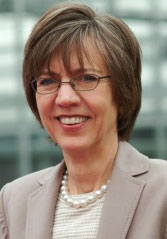 Anna
Ball Anna
Ball
President & CEO
Ball
Horticultural Company
Illinois,
USA
I grew up in
the flower seed industry, although never with
the thought that I would be working in it. It
was a very male dominated industry then of
course but things have changed dramatically. Our
seed industry is the best kept secret in the
broad world of agriculture - it is big enough to
have lots of possibilities but small enough so
one person can have a big effect. And it is a
great industry for women.
I always thought being a woman in business had a
lot of advantages. You may have to work harder
to prove yourself, but that isn't all bad! Play
up your strengths and ignore your weaknesses.
Work hard. Try to find a job in which you can
integrate your work and family and don't have to
"balance" them. I never believed in balance; it
is boring. If you have a job you love, of which
there are many in the seed industry, you don't
differentiate so much between work and home.
They can run together in a rich and wonderful
way. Sometimes you go all out at home and
sometimes you go all out at work. And sometimes
work and home become one.
I encourage you all to join the seed industry
and go for it! |
|
|
|
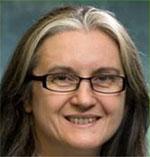 Veronique Heyes Veronique Heyes
Regulatory Affairs Manager
Germains Seed
Technology
United Kingdom
With degree
qualifications in Economics and Modern
Languages, as well as professional
qualifications in translation and interpreting,
I had little idea of where to go when I left
college. Coming from a long line of teachers, it
was expected I would enter the profession. There
was a big drawback however, my preferring the
company of adults rather than of children and my
distinct lack of patience, so I discounted this
option, much to my mama’s chagrin (think of the
long vacations…).
Having earned some pocket money while studying
by taking on interpreting and translating
commissions, I knew I was not cut for the
gruelling schedules of simultaneous
interpreting, and translation work bored me to
tears, no matter how well paid that was.
I still started my working career as a technical
translator with a small UK distributor of a
German manufacturer of elevator motors and
ventilators for industry. Other duties soon came
my way in dealing with our travelling reps’
enquiries and putting offers and quotes
together. I could work out the technical
requirements for ventilating computers to
industrial pig sties. As I sat mesmerised in
sales meetings, I longed to have my little
company car and get on the road to visit those
exotic customers. This traditional business
however did not consider women worthy of an
‘outside job’. I left after 3 years.
I started as a commercial assistant with
Nickerson Seeds, on the strength of my language
abilities and was given the responsibility of
managing agents and distributors in French and
Spanish speaking countries. I was fortunate to
be located in a plant breeding station, and took
every opportunity to learn about our crop, sugar
beet, over coffee with our plant breeders, and
going out with our field workers to tend to
field trials. I loved every minute of it, and my
hunger for knowledge was truly fired up.
Within a year I had been negotiating tenders and
seed supply contracts in Syria, Lebanon, Chile,
Argentina and Morocco, in the latter negotiating
in person with the National Buying Agency in
Rabat. They had not seen a woman in a
negotiating capacity before and this caused
quite a stir. They learned to quite like the
harmonious yet business like proceedings and our
business and trust grew substantially over time.
I made business trips to countries I had not
imagined I would even go to in my wildest
dreams. I was hooked, I loved the seed business,
and I loved the people.
8 years later, I was approached by Germains and
joined the company as Sales and Marketing
Manager. I am still here, 25 years later. My
career at Germains has been varied and exciting.
The first decade saw me working with the team to
create a strong European business for our sugar
beet seed technology, such as the introduction
of seed priming to the UK and USA in the late
90’s, and growing our vegetable seed technology
businesses in Europe. In 2000, I joined the
Board of Directors as Marketing Director. We
launched our first web site in 2001, rebranded
our enlarged business entities under one banner;
it was a fascinatingly creative time in my
career. I then moved on the Board to become
Business Development Director in 2005, an
exciting time when sugar beet seed priming
really took off in Europe and brought new
customers.
In a context of increased regulation on our
industry, Germains made a strategic decision to
focus regulatory competence concerning seed
technology and seed treatment. I was keen to
take on this role, and became Regulatory Affairs
Manager, having strong connection to seed
technology working groups in ESA and ISF.
My advice to women in business, and to men for
that matter too, whatever that business may be,
is never, ever, give up, however it is as well
to be truthful to yourself when it is time to
move on to get out of a rut, as I did in my
first job. I was a foreigner in a new country
when I started out. I was a young woman in a
predominantly male world in my chosen segment of
sales and marketing and agriculture at the time
was much more traditional in its gender bias
than it is today. I never found it to be a
limiting factor, but you have to brave, and
courageous to earn trust and respect over time.
I was never professionally qualified to do the
jobs I have held in the seed industry, but I was
fortunate to be given the opportunity to learn
and contribute to the highest level, the Board.
On the business side, it’s about relationships
and trust between people. After 33 years spent
in and around the seed industry, I am still in
love with it and its people, and there is no
other place where I would rather be. |
|
|
|
|
|
|
Patty Buskirk
General Manager/Partner
Seeds by
Design Inc. and Terra Organics LLC
California, USA
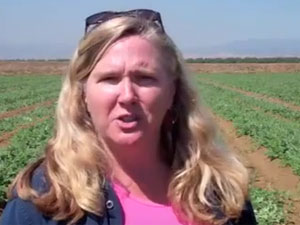
As the Managing
Partner for both Seeds by Design and Terra
Organics, I oversee the research & development,
production, sales & marketing and administration
activities of the two companies.
I am a California native and already knew as a
teenager that I wanted to work in agriculture. I
studied agronomy and ag business at California
State University Chico. Upon graduation in 1981,
I accepted a position in Gilroy as an assistant
brassica breeder. I moved back home to Northern
California in 1989 to start a family and
continue my seed breeding career. In 1994, I
teamed up with partners to start Seeds by
Design.
I consider myself very lucky because I have
experienced the seed industry as a friendly,
family-based industry. Many of my work-related
friends are are like family to me. I throughly
enjoy my career choice and I love the everyday
challenges and ever changing world of seed
production, research and trialing. Research,
variety selection and trials are my true
passion.
Seeds by Design and Terra Organics typically
grow anywhere from 5 to 19 acres of trials
annually. We have an annual luncheon and open
field day every August to showcase our passion
for growing and our varieties to customers,
vendors and our community. Being a breeder and
marketer of multiple vegetable species, I
embrace the challenge of testing many new
varieties every year, and I look forward to the
new set of challenges which the climate and
seasons bring for business. My main breeding
work has been for the home garden industry. I
love to see new generations of gardeners
discover the benefits and advantages of growing
your own food and flowers in your back yard.
I remember well my first ASTA meeting in 1995:
it felt like I was the only woman in an ocean of
seedsmen. I still attend that annual event and
nowadays I love to see the faces of the many
seedswomen surrounding me, including my own
daughters for the first time in 2016. |
| |
Sharan Lanini
Raw Product Food Safety Manager
Fresh
Express
California, USA
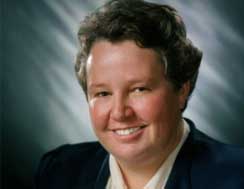
I have worked
for over 30 years in the production agricultural
industry in the western marketplace, primarily
in the fresh produce segment. But it all really
started when I grew up on the family farm in the
Salinas Valley of California, as a farmer’s
daughter, who inherited an innate love for
agriculture. Believe it or not, some of my
current colleagues and our business partners at
Fresh Express were also with me in my youth,
where we all participated in 4-H or FFA—they are
now our growers and Ag business executives in
the industry.
After graduation from UC Davis, within a couple
weeks of coming home, I had a job in agriculture
at the USDA Research Station in Salinas working
for the sugar beet breeder, and that was my
intro to the seed business. I eventually worked
for over 18 years for Moran Seeds, which became
Harris Moran Seeds (now
HM.Clause),
starting out in the R&D department and
eventually working in marketing and sales. My
love of science and my degree from UCD helped to
chart my path. But also getting a job that
involved working in the fields and with growers
whom I had known my whole life ended up being a
dream opportunity.
However, at the time I entered the field in seed
sales there were no women professionals out
there, except a couple of reps for major
agrichemical manufacturers, but virtually no
woman actually working directly with the
growers. Imagine a young woman trying to sell
growers vegetable seed, it was definitely a new
concept for the farmers at the time. Even being
a native to the area and having a degree was no
help with the growers who demanded proof that I
was up to the job. Once I proved to them that I
was there to help them, and would always stand
up for what I said with the facts and science,
answer their questions, and continue to provide
consistent customer service, they accepted me as
a woman in the field. But this principle of
demonstrating integrity, professionalism and
consistency really is an asset that will lead to
success in any job.
I was never afraid to work hard, nor to get my
hands dirty, so part of my initiation in the
seed industry involved long hours of testing for
incompatibility, setting up isolations and
growing pilot crops, as well as hand
pollinations, cleaning seed, and practicing
basic vegetable seed production - learning the
basics of production agriculture. I can not
emphasize enough the power of learning about the
agricultural business from the bottom up. You
will gain tremendous insights, empathy and
understanding that will serve you well
throughout your career. Later when I moved into
seed sales, I put in hundreds of variety trials
and worked closely with the plant breeders to
learn everything I could about our new
varieties. Working closely with those skeptical
growers and helping them get insights into the
emerging new varieties also paid off with record
sales in my Salinas Valley sales territory.
Another must is to get a mentor or two, and
learn all you can about every aspect of the
business.
The seed industry offers tremendous potential
for building a career, whether you are a
scientist or interested in learning the
business, marketing and legal aspects of an
industry that offers opportunities both domestic
and international. Get a solid education and
don’t be afraid to get your hands dirty by
learning all aspects of production agriculture,
it will pay off. Get involved in the industry
and your agricultural community too. |
|
| |
|
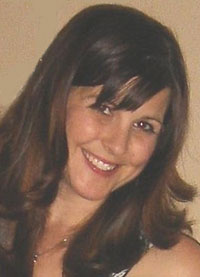 Karen Withers Karen Withers
Export Manager
Pennington Seed Inc.
Oregon, USA
My love of
agriculture and travel began at a young age. I
grew up on a small family farm in Oregon, where
I was involved in almost every area of 4-H and
FFA, from livestock to home economics, public
speaking and foreign exchange. No doubt these
experiences shaped my personality and interests.
After a summer home stay in Japan at the age of
12, I knew that I would pursue a career in
international agriculture.
I received my degree in Agricultural and
Resource Economics with a minor in Japanese from
Oregon State University. Given that my focus was
on international business, I did a one-year
study abroad in Tokyo. This experience not only
enhanced my language and cultural skills, it
also broadened my knowledge of international
business through classes and work experience. I
followed this with a summer internship at the
United Nations in New York City to work on
research and globalization issues.
Upon graduation, I began my career in Portland,
working for Columbia Grain International on
wheat exports. I couldn’t have asked for a
better start to my career, but my heart was not
in the city. I soon moved back to my hometown and began a career at Pennington
Seed, Inc. in nearby Lebanon, Oregon. I hadn’t initially intended to pursue
a career in the seed industry, but growing up in
what is known as the “Grass Seed Capital of the
World” it was probably inevitable that I would
find my way there - and I haven’t looked back
since. The opportunities are abundant.
As a woman in the seed industry, I knew I was
outnumbered from the beginning. Yet, I have
never felt inferior to my male colleagues nor
the need to work harder to prove myself equally
capable. In 2013, I was the first woman to
receive the Young Seedsman of the Year award
(yes, “Seedsman”!) from the Western Seed
Association. The same year, the American Seed
Trade Association (ASTA), established in 1883,
for the first time elected a woman to be one of
top three officers: Risa Demasi , who is now
Chair of the association. The seed industry has
evolved greatly in recent years and there are
now many outstanding women in management and
leadership roles, in Oregon, nationally and
internationally. The path has been well paved
for me and all these women to be judged by our
abilities and not discriminated by gender.
Balancing work and life can be a challenge,
especially with two young children. I couldn’t
have this career without the great support of my
husband and family as well as the “family first”
environment at Pennington Seed. The company's
support and flexibility allow me to not miss out
on the important moments in my children’s lives
while still succeeding in my career and
traveling overseas. The industry as a whole has
also shown that family is important and often
incorporates events at association meetings for
kids of all ages. My children love being part of
this and as a mother I appreciate that I’m not
put in a position to choose one or the other.
The seed industry is a great place for women to
grow, be encouraged, feel like they are part of
a family, enhance their skills and see the
world. |
|
| |
|
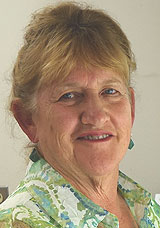 Aleta Meyr Aleta Meyr
President
Ransom
Seed Laboratory
California, USA
A traditional
role: taking over the family business. Not so
usual: a daughter taking over a woman-owned
business that was started in Los Angeles in 1933
by her mother, Elizabeth (Betty) Ransom. I
didn’t doubt that I would have a profession as I
grew up in a family with strong, independent
professional women as role models. Most of my
college years I thought I would do something
different¸but I kept ending up in the lab
working weekends and summer vacations. Being an
avid gardener all my life, I liked hanging out
in the lab as a child and often took the
discarded sprouts and planted them out in the
garden. Growing seeds, using my botanical and
horticultural education and applying them in
such a practical, satisfying business led me
down the path to a profession in the
agricultural world.
So today, as president, CEO, general manager and
Registered Seed Technician at The Ransom Seed
Laboratory, Inc.¸ I have spent some 40 years, my
whole career, in this fascinating agricultural
community. It is so layered, from global giants
trying to feed the world to the small farm down
the road that grows edible flowers for exclusive
gourmet eaters.
I have intentionally kept the lab as a small
business, 10 employees, as it suits my style of
management and personal goals. Along the way I
have learned that to keep a small business
solvent, I had to acquire many skills, including
customer service, hiring and training personnel,
bookkeeping, small repairs on just about any
piece of equipment, and, of course, seed testing
which I am passionate about. When we started
out, we did all our data reporting using a
manual typewriter with carbon paper copies. I
have especially enjoyed the challenge of moving
to computers and keeping up with technological
advances, where all data can be accessed and
sent all over the world in a few seconds. And, I
am still able to engage many hours a day with
hands-on basic work, yes, just counting sprouts
and looking for weed seeds in bulk samples.
Early in my career I began to go to workshops
and conventions, networking with other people in
my profession and staying connected to the many
facets of the seed world. This became an
essential element to keeping the lab a vibrant,
active member of the larger global agricultural
community. I've come to realize the passion of
this community, to be an essential link in the
food chain and fulfilling basic human needs.
And, at the same time we get to work with an
array of biological species which are
fascinating, frustrating, chaotic and a source
of constant new discoveries.
And lastly, in the midst of running this small
business and sometimes working long hours, I had
the pleasure of raising a family of three on our
family farm, and even enjoying a few hobbies. |
|
| |
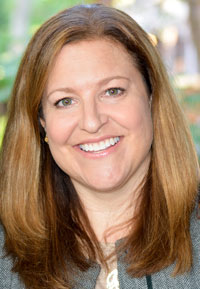 Jennifer Rashet Jennifer Rashet
US Row Crops Quality Management Lead
Monsanto
Missouri, USA
I
never imagined a career in
agriculture… Both sets of my
grandparents grew up on farms in
Iowa, and that was
(unfortunately) the last
generation of farmers in my
family. I began my university
studies in the School of
Engineering at Washington
University in Saint Louis, and
after three years, decided that
the study of culture, language,
and business was my true
passion. I studied abroad for
two summers in Mexico, majored
in Spanish, and dreamed of a
career in international
business. After graduation, I
worked in both the printing and
clothing industries in
import/export logistics and
customs compliance. While
working, I obtained an Executive
Master’s degree in International
Business from Saint Louis
University. Supply chain
experience led me to Monsanto
where I initially led the export
group for crop protection
products. As Monsanto evolved
its agricultural footprint and
began to focus on seeds and
traits, I had the opportunity to
learn about the seed business…US
distribution of seed and crop
protection products, product
positioning, warehousing, and
producing, moving, and selling
seed globally. This included
developing an understanding of
phytosanitary and labeling
requirements. Over time, I
developed an expertise in
state/federal seed regulations
and seed regulatory affairs and
policy.
I volunteered time and became
involved in the American Seed
Trade Association (ASTA),
chairing both the Seed Industry
Relations Committee and Phytosanitary
Committee, and in the International
Seed Federation (ISF), where I
represent ASTA on the ISF
Phytosanitary Committee. My
career in the seed business has
enabled me to travel the world,
work with federal, state, and
international regulators, and
collaborate with competitors on
mutual goals. It has provided me
with the opportunity to
influence and provide input on
the development of an
international phytosanitary seed
movement standard, and build
relationships/networks with
seedsmen and seedswomen across
the globe. After 15 years in
agriculture and with Monsanto, I
reflect on the incredible
leadership opportunities I have
been given and how I have loved
and developed personally and
professionally with every
role/assignment along the
way….being a part of the seed
industry, the challenges,
exciting new technologies,
meeting farmers/customers,
business and leadership
development, working with
talented and bright colleagues,
cross-functional collaborations,
and building lasting
friendships. I am currently
enjoying a challenging role in
the US row crop seed production
area where I am responsible for
US row crop seed quality,
stewardship, and compliance.
I am a single mom and have
raised a strong daughter, now on
her own journey and away to
college. I have always felt
comfortable with my own
work/life balance, perhaps
because Monsanto is incredibly
supportive of all employees in
this area. I have always felt
included as a woman in
agriculture, and have been
treated as an equal by
colleagues at Monsanto and
within the industry. The seed
industry is rewarding, exciting
and diverse. I encourage young
women to only imagine the
possibilities and follow their
passions. Women in ag continue
to have bright futures and an
incredible opportunity to help
feed the world. |
|
|
|
| |
|
|
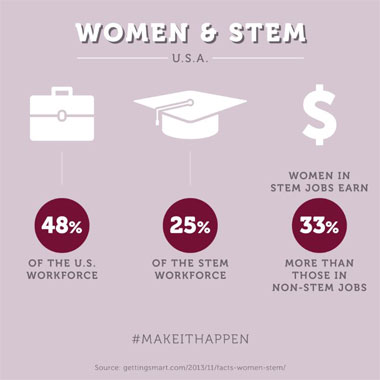 |
Related links
-
Syngenta scientist Mary-Dell Chilton
inducted into USDA Hall of Heroes
-
DuPont names seven new DuPont
Fellows, including Renee Lafitte,
Woodland Site Lead
-
10 weeks at ‘MonSatan’: My work for
the Dark Side
by
Rachel Moore, Intern, Monsanto
-
We Need Women in STEM Careers
by
Sherri Brown, Vice President of
Science Strategy, Monsanto
-
Women in STEM
Office of Science and Technology
Policy, The White House
-
Seed World takes a rare look into
boardrooms and senior management to
examine the role women play and the
skill sets they bring to the table
SeedWorld, November 2013
-
Leading the Way - This business
executive brings a different style
to the boardroom
SeedWorld, October 2014 (see page
12)
-
Project aims to improve food
security by enhancing gender aspects
of ag research
-
How one woman came to be a scientist
SeedWorld, December 2015
|
|
|
|

